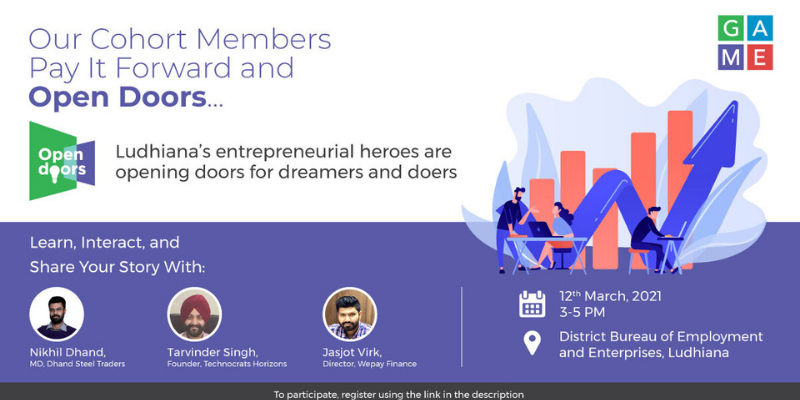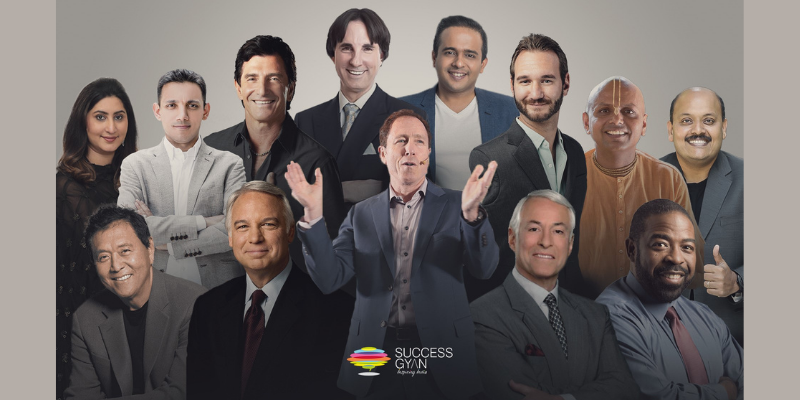Say hello to Winkl, the influencer marketing platform used by the likes of Flipkart and YLG
Influencer marketing is a $10 billion industry globally and brands are consistently looking at platforms beyond Facebook for influencers to boost their visibility. One platform is trying to do this differently.
Food and fashion can never go out of style, spawning a wide range of ‘influencers’ in these fields with a strong set of followers on social media. For the uninitiated, influencer marketing is a form of marketing where the focus is on influential people – like celebrities – with a strong following on social media, and plan marketing activities around them.
While social media platforms are becoming too noisy for brands, influencer marketing platforms are becoming all the rage. In India, brands like Flipkart and YLG are just examples of those taking the help of new-age hipsters to influence their crowd.
Bengaluru-based Winkl, founded by Rahul Singh and Nikhil Kumar, is one such platform that was born out of the experience of not running a business without influencers.

Also read: Growth hacking is like Walter White in Breaking Bad: a digital marketer’s story of scaling smart
While in college at NIT-Surathkal, Rahul and Nikhil set up two companies, BooksonHire and Waverr, which dealt in renting out books and engaging small businesses and their customers, respectively. Being an entrepreneur while you are in college is often a good idea. The time spent building a business in college prepares an entrepreneur to run operations even in the face of being cash-strapped.
So even though the two startups shut down in the face of challenges related to scaling up. But hey had learned plenty by then. For one, they knew that starting up was a good thing because they were building the technology themselves and the only thing they had to focus on was the market opportunity.
Armed with this knowledge and experience, they set up Winkl in 2017 by investing Rs 5 lakh of their own savings.
Co-Founder Rahul Singh says, “Winkl was born out of the problems we faced while working on one of our earlier projects. We had a tough time with influencer marketing as we had no clue who to work with, how much to pay and what kind of content would work for us. From this need, we came up with the idea."
Influencer marketing
Winkl ensures that content creation for influencers isn’t a lonely journey, but an emotionally and a financially rewarding one. The platform helps influencers create detailed profiles, showcase their work, receive feedback and make money through brand collaborations. Winkl also helps brands run influencer marketing campaigns at scale in a manner that is as easy as running a Facebook ad.
Rahul says, “Influencer marketing is one of the fastest growing consumer acquisition channels globally and is catching on in India very quickly. More and more brands and agencies are working with influencers to promote products, brand launches, sale events, store openings, among others."
According to Mediakix, this market is all set to reach $10 billion by 2020 globally. In India, this segment is yet to grow so big and is part of the $1.5 billion digital spending market. Nevertheless, the growing traction in influencer marketing is giving rise to a large number of budding and aspiring influencers.
“Given our experience with some large brands in India, about 7-10 percent of digital marketing budgets are deployed toward influencer marketing. We expect this to go up to 25 percent in the next 3-5 years,” says Rahul.
PR and digital media agencies are currently helping brands with influencer marketing using the service model. Winkl automates 90 percent of this process and ensures that a lot of the manual work that agencies do are done without the need for human intervention. “In fact, going forward, we’ll be allowing even agencies to use Winkl to make their influencer campaigns more efficient,” says Rahul.
Also read: Automatad founder Vijay built a Rs 25 crore business with less than Rs 12 lakh in his pocket
How does the solution work?
Once influencers sign up on Winkl, it creates a detailed profile for them, where they link their social accounts, add brands they have worked with, details of their best work, and so on. They can also invite the brands they have worked with to recommend them, so as to add credibility to their profiles.
After the profile has been created, influencers begin engaging with the app, where they post their recent work and the creative process behind this. They share feedback on what others are working on and can go on to create their own blogs on Winkl itself.
The best influencers from Winkl are those who work with brands for collaborations. For brands and agencies, a platform like this helps identify the most relevant and genuine influencers based on campaign parameters, create content templates and briefs, communicate with influencers, track campaign performance. and make payments.
Rahul says, “The first brand (which we cannot disclose) we worked with came via a referral where a blogger recommended Winkl to the brand as a way to run campaigns. It was a campaign for about Rs 50,000."
Since then, the company raised an undisclosed angel round from a clutch of investors and has been a part of Axilor’s Summer ’18 accelerator cohort. The company has also signed up 15 brands, including salon chain YLG, ecommerce marketplace Flipkart.
The journey has not been without its challenges.
Nikhil says, “It’s been difficult to get the right people to join us, given that we can’t offer higher salaries, but it’s been fun given that you attract the right kind of people when you don’t really have too much money. Also, making investors understand what influencer marketing really is, has been challenging."
The company makes money by charging brands a commission of the total campaign spending of the brand, in the range of 2-5 percent.
“Our plan for the next 18 months is to continue to invest in our community product, have more than 10,000 influencers using Winkl and achieve a target reach of 300 million consumers,” he adds.
“We also want to ramp up our brand side of the business, which we will begin by hiring a sales team,” says Rahul.
What sets it apart
Winkl, unlike other influencer platforms, is community-led at its core. This enables it to build loyalty and long-term network effects in the influencer marketing industry. The founders say they the company is all set to clock Rs 1.5 crore in revenue this year.
While Winkl competes with companies like Pulpkey, Starngage and Influencer, the founders believe it is only a matter of time before brands fully understand the significance of influencer marketing.
The industry is new and will take off in India in the next decade. Global brands like Adidas, Zara and Lynda.com already use influencers to push their brands across a wider audience.
“The company has figured out how brands connect with millennials, and it is going to be a big part of where brands are spending their money,” says V Ganapathy, CEO of Axilor Ventures.









![[TechSparks 2020] Robust tech and architecture helps Zoom support over 3 trillion meeting minutes in a year](https://images.yourstory.com/cs/2/a9efa9c02dd911e9adc52d913c55075e/Screenshot2020-10-30at2-1605004421972.png)
![[Funding alert] Femtech startup Say Cheese raises seed round at Rs 10 Cr valuation](https://images.yourstory.com/cs/2/b87effd06a6611e9ad333f8a4777438f/Imageq5t5-1615799062761.jpg)
